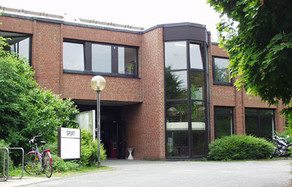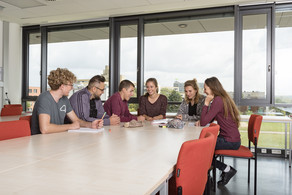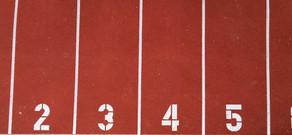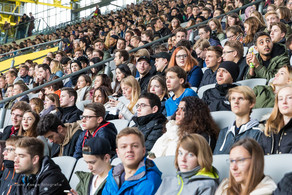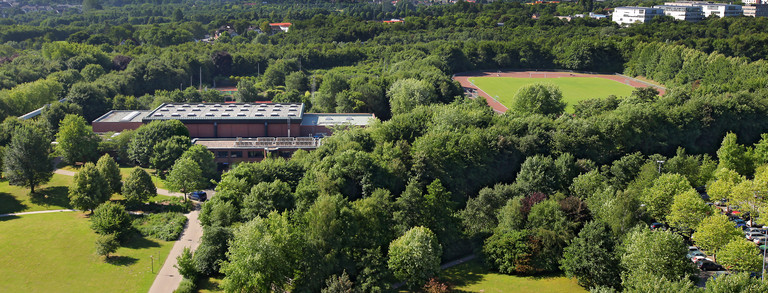Sportive Orientations and Body Cultures of Adolescent Migrants in the Field of Tension between School and Lifeworld
| Project management: | Prof. Dr. Ulrike Burrmann Prof.Dr. Jörg Thiele Prof. Dr. Michael Meuser (Sociology) |
| Collaborators: | Dr. Sebastian Kunert Benjamin Zander Nicole Kirchhoff (Sociology) |
| Client: | DFG |
| Duration: | 2014-2017 |
Goals and contents
Schools seem to prefer and support the patterns of knowledge and action that are imparted to adolescents in environments close to education. The focus is on young migrants, who disproportionately belong to the so-called educational losers. If the aim is to create and support something like a milieu-specific empowerment, the field of physical activity and sports can offer a good starting point for adjusting the often dysfunctional relationship between schools and their students with a migration background, at least in an initial approach. The low significance of the subject of sport with regard to school qualification success could even be a strength in this specific constellation, since the process of a re-approximation of contexts is not immediately confronted and charged with questions of selection and social recognition. On the contrary, school sports might represent one of the few opportunities for some students to generate specific experiences of success at school, also because sports are among the most popular leisure activities. Based on quantitative and qualitative data, this research project attempts to decipher socialization mechanisms that contribute to the differential participation of adolescents with a migration background in school and out-of-school physical activity and sport practices. The focus is on the question of the extent to which certain patterns of empowerment are preferred in school sports, i.e. to what extent school sports, and especially physical education, are oriented toward the value and norm preferences of educationally disadvantaged milieus. The project consists of two interlinked parts: 1. a secondary analysis of the representative Sprint study with 7,436 seventh and ninth graders, including 1,722 migrants and the possibility of linking the student data with parent and teacher data; 2. group discussions with 16 natural groups of age-matched students with a Turkish migration background in a longitudinal setting (7th and 9th grade). The explanatory value of gender, class and migration background in their entanglement on the socialization of adolescents to school and extracurricular sports is investigated. The sociosomatic cultures of migrants are explored with regard to the processes of their constitution, their possible ethnic connotation in practices of self-attribution and attribution to others, and their lifeworld realization. Furthermore, it will be asked how the migrants perceive school sports as well as extracurricular exercise activities against this background, how they judge them and how they influence them by their own decisions. On the basis of the findings, first consequences for the construction of a school sport, which tries to implement the guiding principle of empowerment, will be derived with the necessary provisionality. School appears to particularly prefer and support those patterns of knowledge and action that are conveyed to adolescents in the educated class. This research project focuses on adolescent migrants who represent a disproportionately large number of a so-called educationally disadvantaged group within our society. The field of physical activity and sport can help initially in strengthening the agency of that group and in readjusting the often difficult relationship between schools and their students with migrant background. Since sport is considered to play a peripheral role in defining academic success it could actually strengthen a rapprochement by schools and their students because it provides an area where matters of selection and societal recognition play a minor role. School sport may represent one of the few opportunities to some students for generating a sense of achievement in school since sport is among the most popular leisure activities of adolescents outside of school. Based on quantitative and qualitative data, this research project studies socialization mechanism that contribute to varying participation rates of adolescents with migrant backgrounds in schools, in extracurricular exercise and in sports practices. The central focus is to analyze to what extent specific patterns of agency are preferred in school sport, in other words to what extent any kind of school sport, especially physical education, is oriented toward values and norm preferences of more highly educated social milieus. The project consists of two related parts: (1) A secondary analysis of data from the representative Sprint study with 7,436 seventh- and ninth-graders, including 1,722 migrants, and the option of linking student data with parent and teacher data; (2) Group discussions with 16 natural groups of same-aged boys and girls with a Turkish background in a longitudinal design (grades 7 and 9). The goal is to evaluate how gender, social class, migration and their intersections predict the socialization process of teenagers in school sport as well as extracurricular sport. The socio-somatic cultures of migrants will be investigated with regard to their construction processes, their possible ethnic connotations accomplished in practices of self-attributions and attributions by others as well as their realization in everyday life. Furthermore we ask how migrants perceive, judge and influence physical education, school sport and extracurricular physical activities through their own decisions. Based on these preliminary results, initial consequences for the construction of school sport attempting to realize the guiding principle of agency shall be derived.


